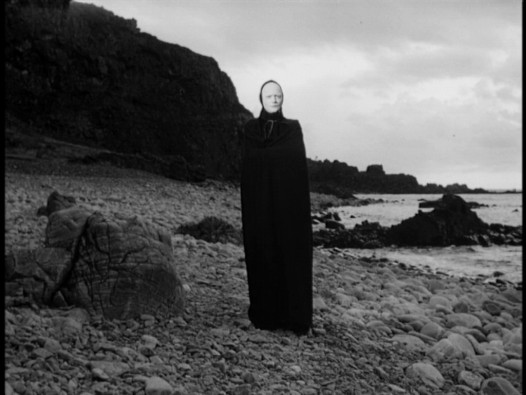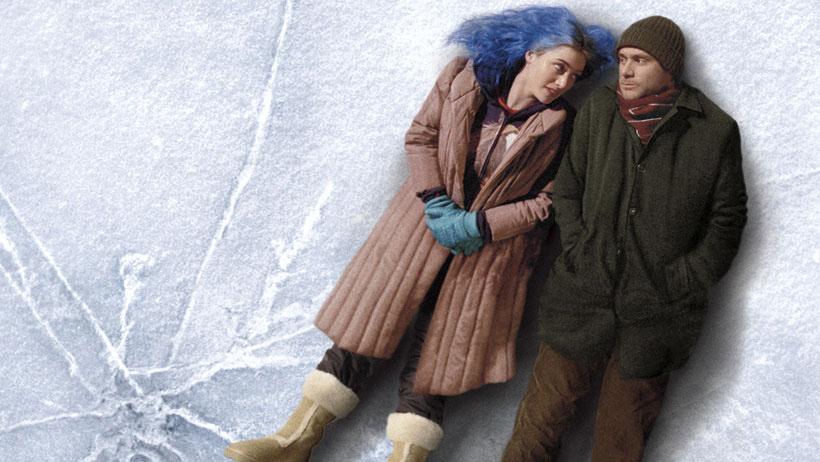 Directed by: Ingmar Bergman
Directed by: Ingmar BergmanCountry of Origin: Sweden
Genre: Drama/Foreign
This past Monday, it was announced that legendary film director Ingmar Bergman had passed away, leaving behind him nearly 4 decades of films from Sweden that helped shape international cinema into what it is today.
Upon discovering this, I was saddened. I also realized that despite the raves I've heard of his classics, I had yet to see a single film by his.
I shared the news with my brother later:
Me: Ingmar Bergman died today.
Brother: . . . .
Me: You do know who he is, right?
Brother: (hestitantly) Yeah...
Me: Name some films he's done then.
Brother: ...... Casablanca?
As it turns out, literally no one in my family had heard of Bergman. There seems to be two type of people in this situation: those who know Bergman and have seen his movies, and those who have never heard of him and will probably never venture out of their way to see some "weird Swedish movie."
I found myself in a rare situation: I had heard of Bergman, and his films, but I had never seen them. I figured it was time to place myself out of this small group and into the first by watching the film that mostly made him famous The Seventh Seal, or rather, Det Sjunde inseglet.
(Of course, it did take a while to find a rental place in my town that had films pre-1960, let alone a foreign film from pre-1960. God forbid. Yeesh.)
 I don't quite know what to say about this piece of cinema. I can certainly say it's unlike anything I've ever seen-- well, true, it's Swedish, but it has a flair to it that's unique. I give Bergman my 100% respect on masterfully blending many different elements of particular genres into one film- romantic relationships, playful jests, disturbing rituals, religious outputs-- philosophies on life even. It's often I'd find myself laughing at one moment and staring in horror at the next, then simply sitting in awe at how powerful the film is.
I don't quite know what to say about this piece of cinema. I can certainly say it's unlike anything I've ever seen-- well, true, it's Swedish, but it has a flair to it that's unique. I give Bergman my 100% respect on masterfully blending many different elements of particular genres into one film- romantic relationships, playful jests, disturbing rituals, religious outputs-- philosophies on life even. It's often I'd find myself laughing at one moment and staring in horror at the next, then simply sitting in awe at how powerful the film is.Det Sjunde inseglet is the story of Antonious Block and his squire, Jons returning back home to Sweden after fighting with the Crusades. Upon arrival, though, it seems Death is lingering everywhere with the Black Plague... and how literal this is, as a pale-faced Bengt Ekerot dons a cloak and lolls about as Death. The beginning scene crashes on screen with a complex coral number and stunning photography to reveal Block and Jons lying on a beach. When Block (Max von Sydow, masterfully played) wanders off on his own, he comes across Death. "Are you ready?" Death asks. "My body is ready," replies Antonious, "but I am not."
 Antonious decides that he will literally play for his life in a game of chess with Death. If Death wins, he keeps Antonious and if Antonious wins he is freed. The game continues throughout until the end. This is absolutely the film's most well known moment, spoofed often and rightfully so. The imagery lingers well after the film of the solemn figure of Death calmly sitting opposite a knight with a chessboard between them.
Antonious decides that he will literally play for his life in a game of chess with Death. If Death wins, he keeps Antonious and if Antonious wins he is freed. The game continues throughout until the end. This is absolutely the film's most well known moment, spoofed often and rightfully so. The imagery lingers well after the film of the solemn figure of Death calmly sitting opposite a knight with a chessboard between them.The writing is clever as Antonious and Jons (and of course Death) move across Sweden, forming a "troop" if you will of many a-folk: a band of artists who perform shows, a smith and his promiscous wife, and even a tottering baby meant to symbolize Jesus. The complex additions and subtractions only make the film more enjoyable as it moves around.
 There are two moments in the film that absolutely leave in imprint in my mind. The first is the encounter between a Witch and the God-doubting Antonious. The Witch, a young woman believed to be possessed by the Devil is to be burned at the stake that evening, but Antonious is curious to questioning the Devil himself about the reality of God. Upon asking the Witch, she replies, "What do you see?" "Nothing but terror," says Antonious. The conclusion of the scene draws Jons to correct Antonious by saying that all that is within her is "emptiness." The mournful look as the girl looks out and the absolute meltdown Antonious gives is both harrowing and haunting.
There are two moments in the film that absolutely leave in imprint in my mind. The first is the encounter between a Witch and the God-doubting Antonious. The Witch, a young woman believed to be possessed by the Devil is to be burned at the stake that evening, but Antonious is curious to questioning the Devil himself about the reality of God. Upon asking the Witch, she replies, "What do you see?" "Nothing but terror," says Antonious. The conclusion of the scene draws Jons to correct Antonious by saying that all that is within her is "emptiness." The mournful look as the girl looks out and the absolute meltdown Antonious gives is both harrowing and haunting.And last (also last in the film), is what is known as "The Dance of Death." I won't spoil the film for you, but that little monologue the actor gives along with the ghostly image of the seven people holding hands and dancing across a mountain echoes across my mind constantly. It is with amazing ease that Bergman ends his film this way, not only leaving a sense of closure but also a sense of pride and of bewilderment.
To those that have not seen this widely well-regarded piece of film, I would strongly suggest that you bother to search for this epic piece. I belive it's essential for anyone who wants to call themselves a film fan.
10/10.




No comments:
Post a Comment